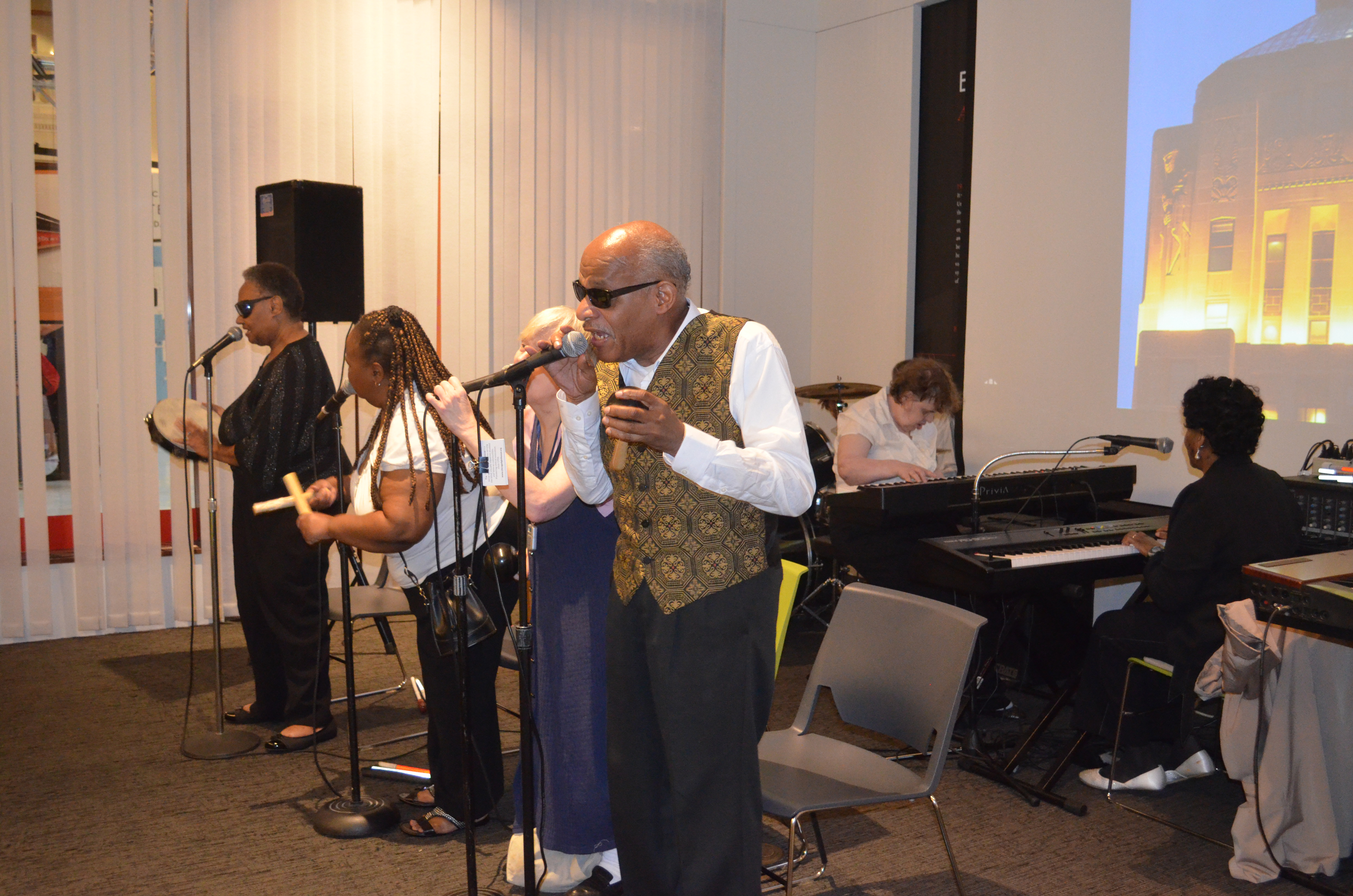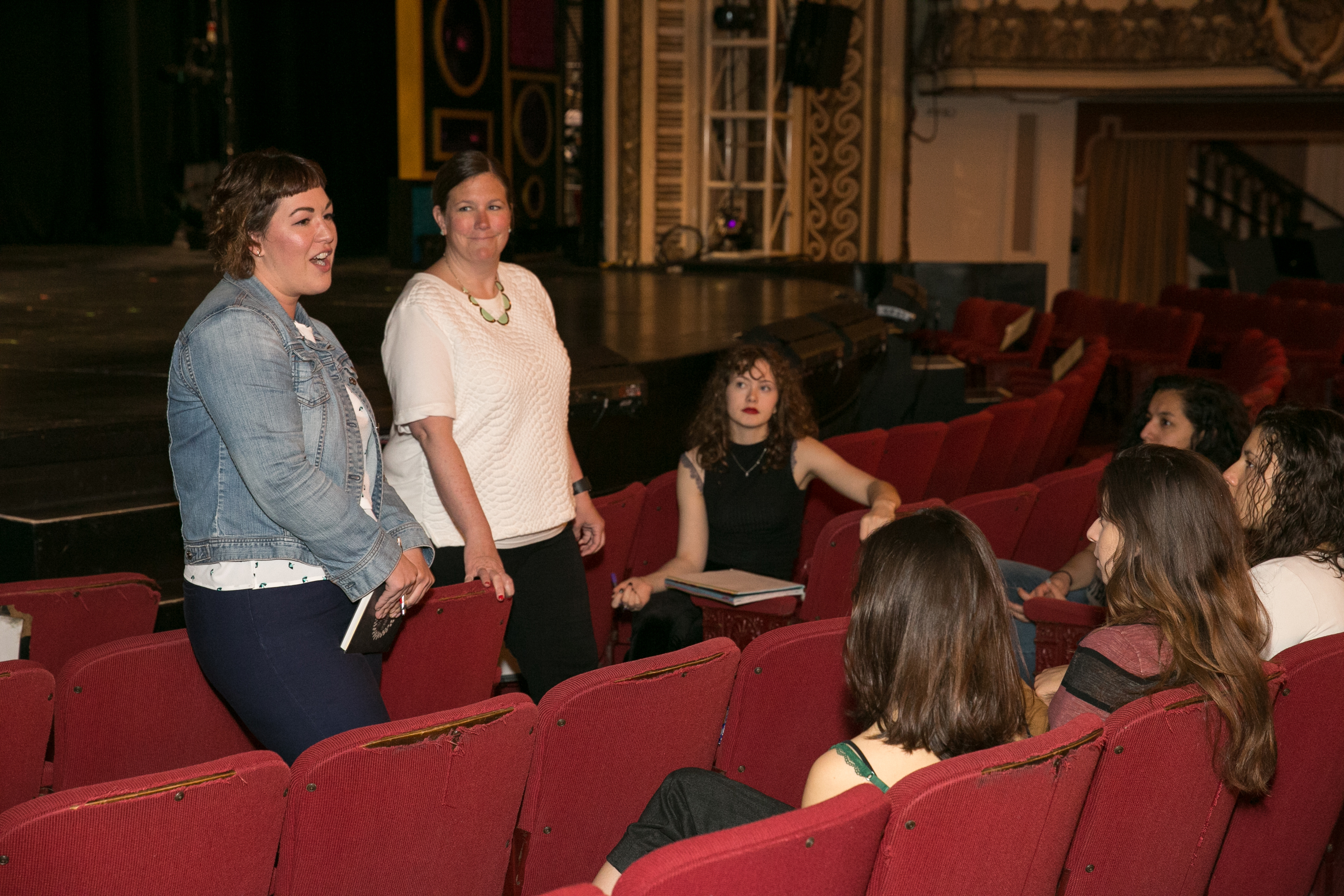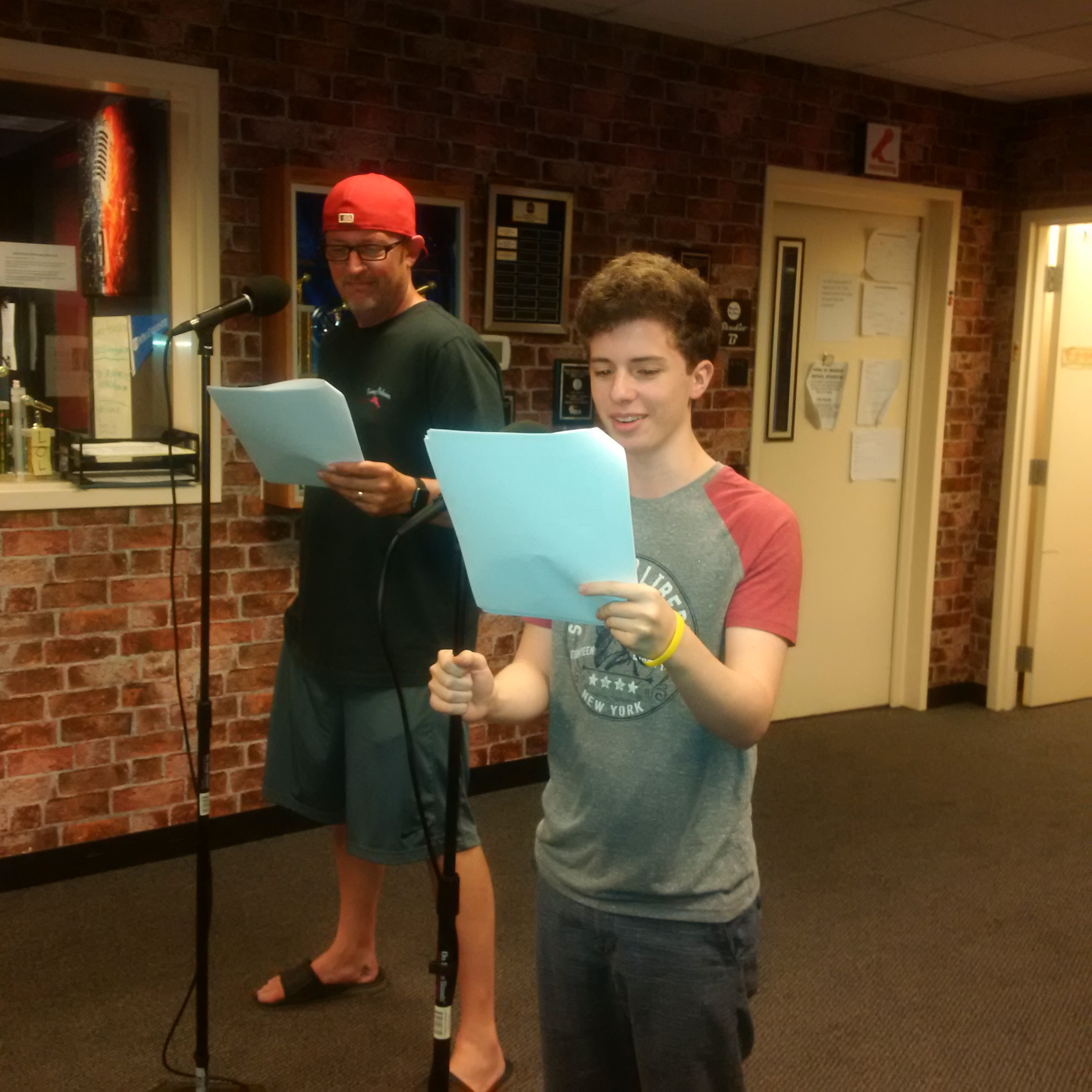 Vision Quest created and recorded original music for the shows
Vision Quest created and recorded original music for the showsClassic shows from the Golden Age of Radio are a treasure trove for people who are blind or visually impaired. Programs such as “The Adventures of Sam Spade” were created to be listened to, not watched. Yet fresh material is hard to find.
Enter Roxanne Owens, associate professor of teacher education, and Hugh Ingrasci, associate professor emeritus of English. Years ago they had middle-school students listen to, write and record shows like “The Shadow” as a tool for listening comprehension.
“It would take a long time for the students to get used to just listening. But, once they got the hang of using their imagination, they liked it,” Owens said. Students who typically resisted writing would come in with long scripts of their own to record. “It captured their imaginations, especially among the boys.”
 |
The Theatre School (TTS) at DePaul held its first sensory-friendly performance adapted for children on the autism spectrum with help from special education assistant professor Linsey Sabielny (left) and instructional assistant professor Anne Butler. The two worked with TTS students to adapt “Cinderella: The Remix.” Changes included brighter, steady lighting, muted sounds and a quiet room for children who needed a break. Graduate students in special education created lesson plans and engaging activities that teachers could use in conjunction with the performance. Sabielny and Butler plan to partner with TTS on future shows. |
After Ingrasci retired and began volunteering with the Chicago Lighthouse for the Blind and Visually Impaired (CLBVI), he asked Owens if she could find the old tapes and donate them to the organization’s clients. She did—and went a step further.
“I wanted to resurrect that old project and expand it,” she said. With the aid of a faculty grant, Owens interviewed four experts in the genre and hired a professional writer to create a model script as the basis for her lesson plan. She recruited high school students to write their own scripts and perform them. Original music was written and recorded by Vision Quest, the CLBVI’s band. Finally, she hired Bea Aldrich (CMN ’17), then the station manager for Radio DePaul, to incorporate the music and sound effects and finalize production.
Listeners were delighted by the new shows, which aired in fall 2017 on CRIS Radio, the CLBVI’s radio station. The shows may be the first of many.

“We’ve created a website for teachers where they can see, step by step, how to do this project with their students,” Owens says. “I’m hoping that the teachers send [recordings] to me. If they’re good enough, we’ll continue to play them on the radio station and post them on our website. We think it’s a great literacy project for the 21st-century student.”